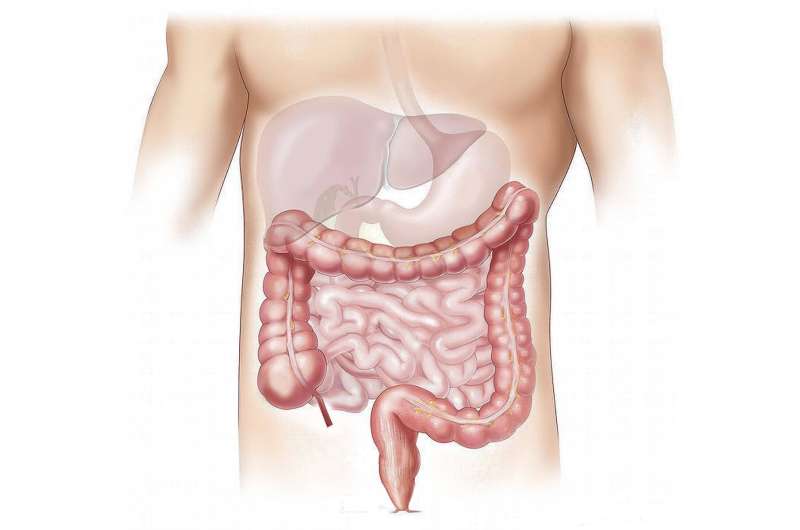This article has been reviewed according to Science X's editorial process and policies. Editors have highlighted the following attributes while ensuring the content's credibility:
fact-checked
trusted source
proofread
Psyllium fiber protects against colitis by activating bile acid sensor, researchers find

Psyllium fiber protects against ulcerative colitis and suppresses inflammation by activating the bile acid nuclear receptor, a mechanism that was previously unrecognized, according to a new study by researchers in the Institute for Biomedical Sciences at Georgia State University.
The findings published in the journal Cellular and Molecular Gastroenterology and Hepatology (CMGH) reveal that psyllium, which is semi-soluble and derived from Plantago seeds, inhibits inflammation that can lead to colitis in mice by increasing serum bile acids, resulting in the activation of the farnesoid X receptor (FXR), a bile acid nuclear receptor.
Fiber-rich foods promote intestinal and metabolic health, but the extent of protection varies for each fiber type and the mechanisms that offer this protection are poorly defined. It has been unclear whether dietary fiber can benefit severe forms of intestinal inflammation, such as Crohn's disease and ulcerative colitis, which are collectively known as inflammatory bowel disease (IBD) and affect 3 million adults in the United States.
This study was designed to identify specific fibers that might protect mice in two models of experimental colitis. The study also investigated the mechanism by which protective fibers might suppress inflammation.
Several fibers were tested, including inulin, cellulose, pectin, glucomannan and psyllium. The authors found psyllium has the unique ability to improve two chronic inflammatory states: metabolic syndrome and colitis.
"The results were impressive in that even modest amounts of psyllium provided strong protection in both colitis models," said Andrew Gewirtz, senior author of the study and Regents' Professor in the Institute for Biomedical Sciences at Georgia State.
"That psyllium can offer protection against colitis fits with limited human studies that psyllium is effective in maintaining remission of ulcerative colitis, but its mechanism of action was largely unknown," added lead author Alexis Bretin, a postdoctoral fellow in the Institute for Biomedical Sciences at Georgia State, who also noted that the new study has filled this gap of knowledge.
Psyllium led to an increase in bile acids that resulted in activation of the FXR bile acid receptor. Such FXR activation was necessary and sufficient to prevent colitis. This suggests that pharmacologic FXR activation might be useful in managing IBD.
The study also provides evidence that dietary fiber can benefit IBD, which has been unclear.
"There has been a lack of consensus on the impact of dietary fiber on IBD, and the notion that soluble/fermentable fibers might negatively impact IBD has prompted many patients to consume low-fiber diets, thus missing out on the broad array of health benefits provided by fiber," Gewirtz said. "Our findings indicate distinct fibers act quite differently from each other and thus more human studies of specific fibers are warranted."
More information: Alexis Bretin et al, Psyllium Fiber Protects Against Colitis Via Activation Of Bile Acid Sensor Fxr, Cellular and Molecular Gastroenterology and Hepatology (2023). DOI: 10.1016/j.jcmgh.2023.02.007


















